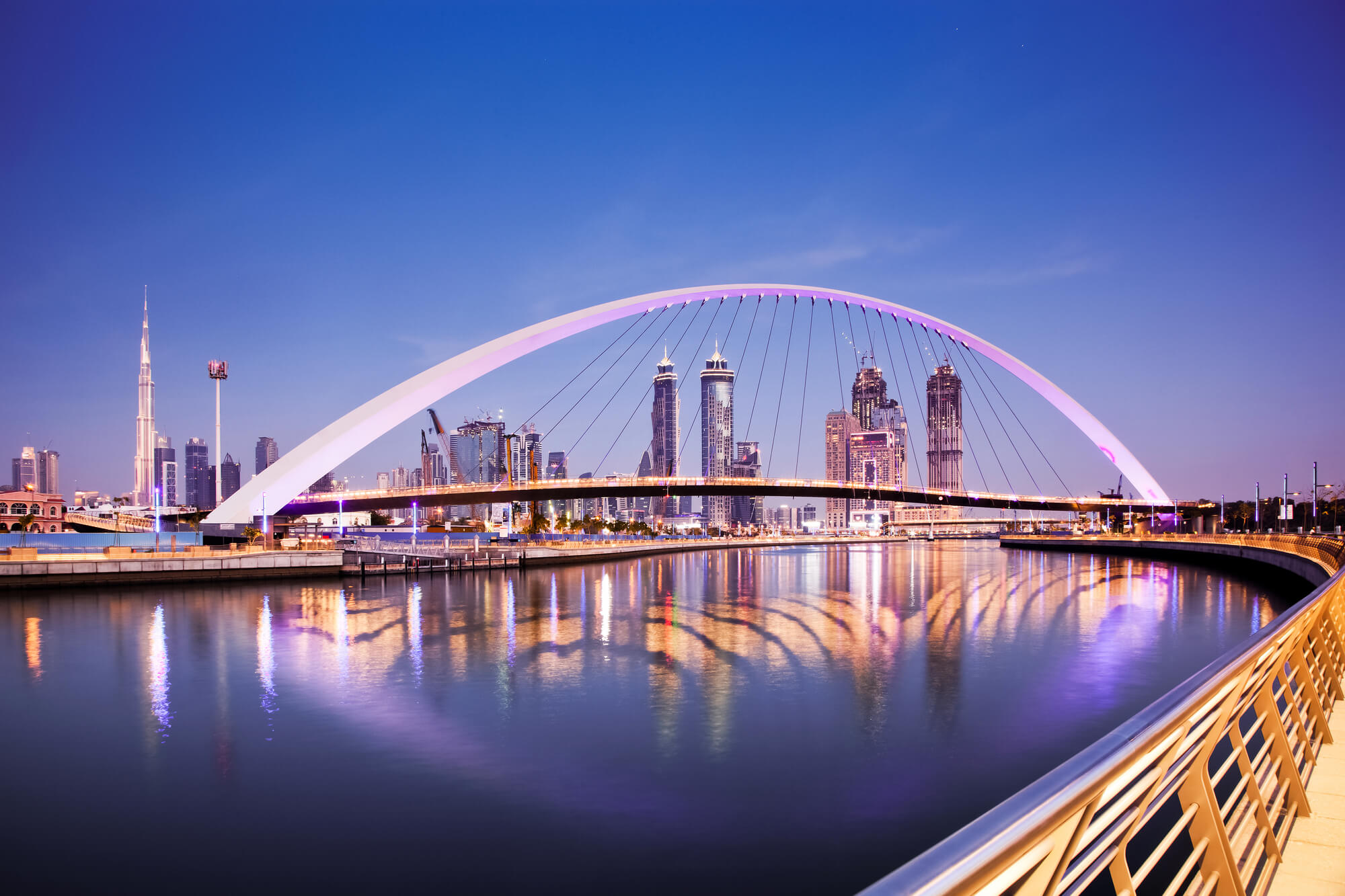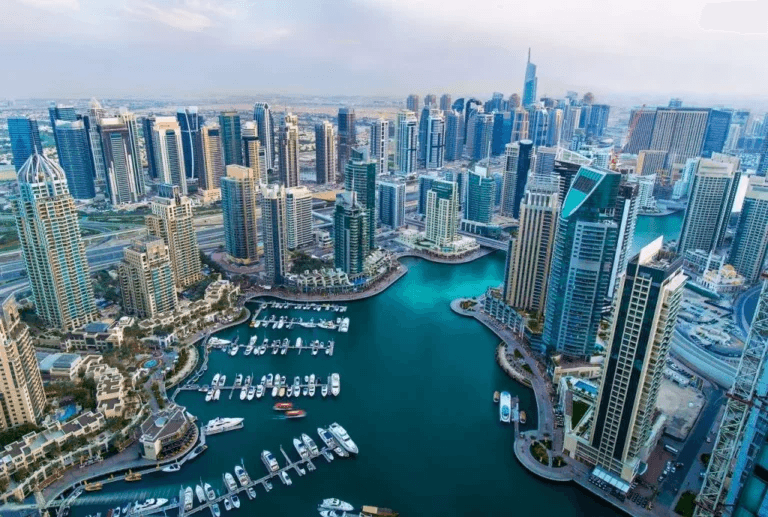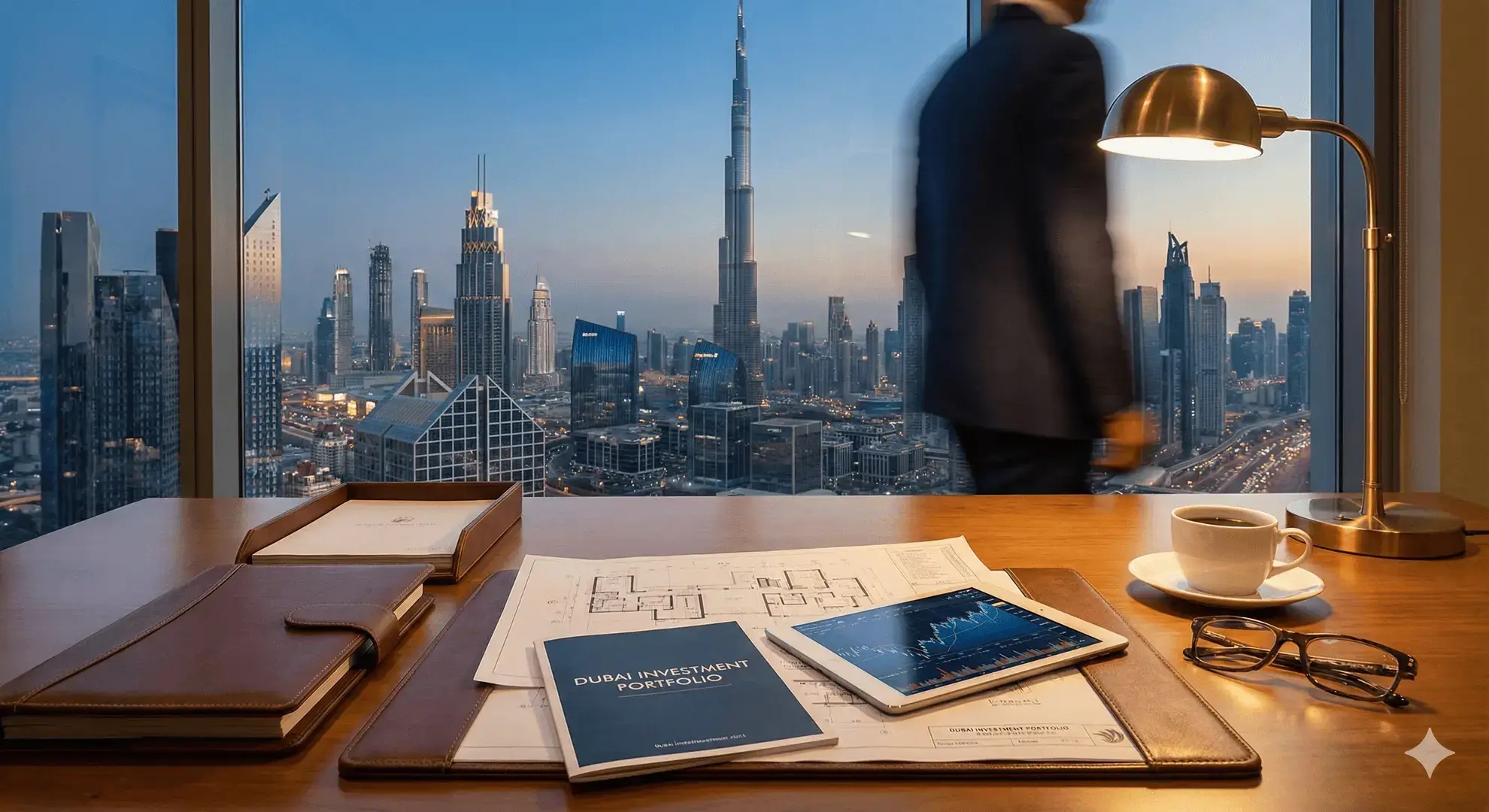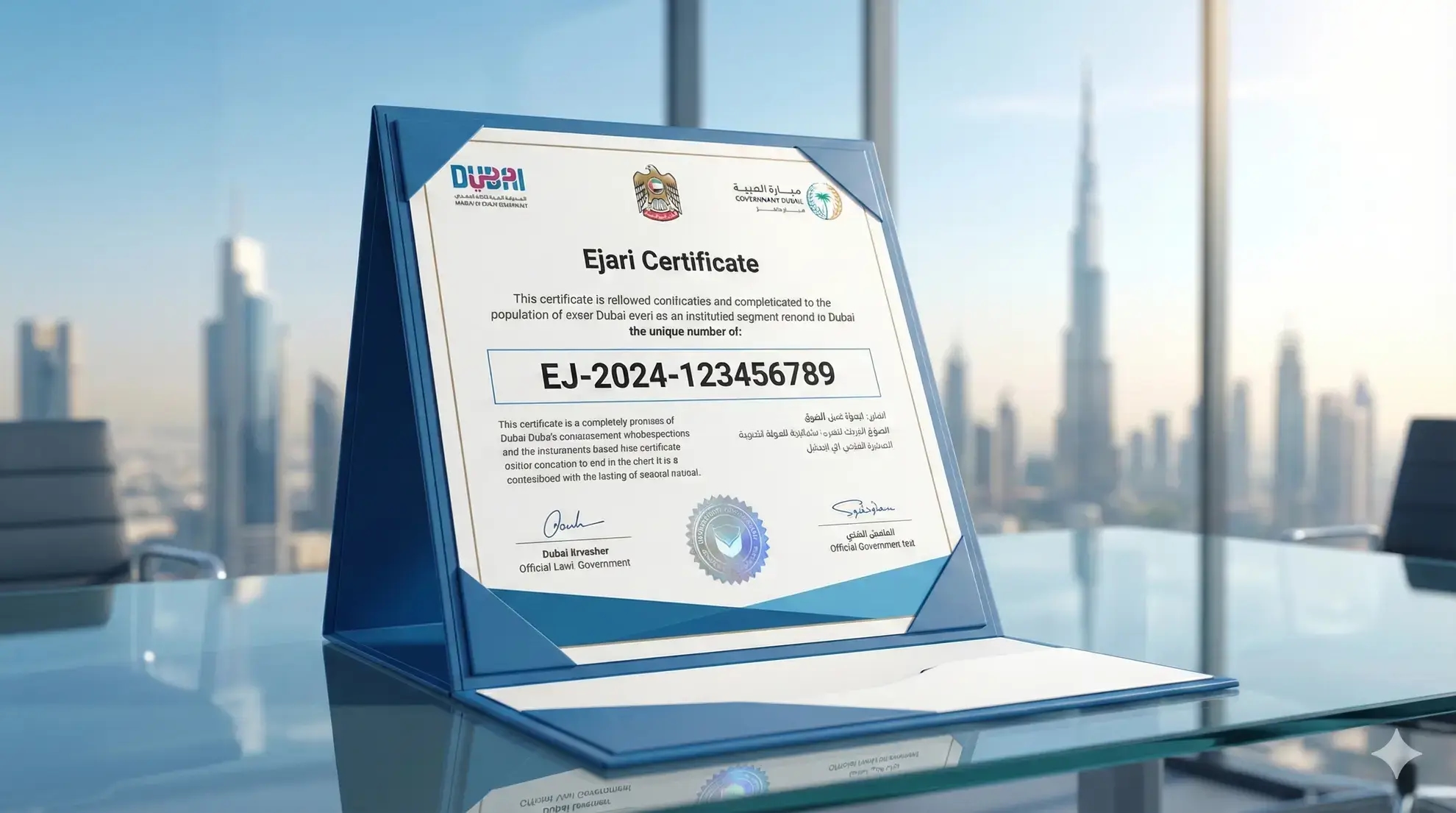Cost of Living in Dubai 2025

Moving to Dubai or investing in its vibrant real estate market requires a realistic understanding of day‑to‑day expenses. In 2025, Dubai remains one of the world’s most dynamic and desirable cities — offering world‑class infrastructure, exceptional service standards, and strong career and business opportunities. Yet, the overall cost of living can vary significantly depending on your lifestyle, chosen community, and preferences.
This guide from Mayak Real Estate provides an up‑to‑date overview of typical living costs — from rent and utilities to groceries, transport, healthcare, and education — based on 2025 market data.
It’s designed for anyone planning a move, considering property purchase, or simply curious about what income is needed for a comfortable life in the UAE’s most cosmopolitan city.
Overview: How Expensive Is Dubai?
Dubai remains a high‑cost city, but one that offers exceptional value thanks to its lifestyle, safety, and lack of personal income tax. Housing typically takes the largest share of one’s monthly budget, and prices can differ by more than 400% between districts.
While Dubai regularly appears on global lists of the world’s priciest cities, overall living costs are still lower than in New York or London — particularly once you factor in the UAE’s tax‑free income advantage. This is a major benefit for professionals earning their salary locally.
A quick breakdown shows housing as the main expense, followed by utilities (especially air conditioning in summer), food, and transportation. Public transport is efficient and affordable, while owning a car comes with additional insurance and fuel costs.
Category | Single | Couple | Family (2 kids) |
|---|---|---|---|
Rent | 8,500 AED | 14,000 AED | 25,000 AED |
Utilities | 600 AED | 900 AED | 1,800 AED |
Groceries | 1,200 AED | 2,000 AED | 3,500 AED |
Transport | 400 AED | 700 AED | 1,500 AED |
Leisure & other | 800 AED | 1,200 AED | 2,000 AED |
Total (approx.) | 11,500 AED | 18,800 AED | 33,800 AED |
Housing: The Largest Expense
Rent or mortgage payments form 40–60% of total monthly spending. Prices vary widely:
Downtown Dubai, Dubai Marina, and Business Bay top the list with luxury apartments overlooking the Burj Khalifa or waterfront. Two‑bedroom flats here often exceed 200,000 AED per year.
Mid‑range communities such as Jumeirah Village Circle (JVC), Dubai Hills Estate, and Al Furjan offer modern living at roughly half that cost.
Budget areas — International City, Deira, and Dubai South — remain ideal for young professionals and newcomers.
Type / Area | Downtown | Marina | Business Bay | JVC | International City | Arabian Ranches |
|---|---|---|---|---|---|---|
Studio | 90,000 AED | 80,000 AED | 75,000 AED | 50,000 AED | 38,000 AED | – |
1BR | 130,000 AED | 115,000 AED | 100,000 AED | 75,000 AED | 50,000 AED | – |
2BR | 190,000 AED | 165,000 AED | 145,000 AED | 105,000 AED | 75,000 AED | – |
Villa (3–4BR) | 450,000 AED | 400,000 AED | 350,000 AED | 250,000 AED | – | 550,000 AED |
Contracts usually run for 1 year, with payments made via several post‑dated cheques. Tenants also pay a 5% refundable deposit and an agency commission (2–5%).
Buying Property: Building Future Value
Purchasing real estate in Dubai is not just about saving on rent — it’s also a powerful investment. In 2025, prices range from 17,000–25,000 AED per sqm in central districts, and 8,000–12,000 AED per sqm in developing areas like JVC or Dubai South. Average annual returns (ROI) remain high at 6–8%, outpacing most European cities.
Foreign buyers investing from 1 million AED qualify for a UAE residency visa, adding long‑term security and business flexibility. For those planning to stay five years or more, owning property often makes better financial sense than renting.
Utilities and Internet
Dubai’s utility costs depend greatly on housing type, occupancy, and season. DEWA (Dubai Electricity & Water Authority) covers electricity and water, while Empower and Tabreed handle district cooling.
Apartments (1–2 BR): 600–1,500 AED/month
Villas: 1,500–3,000 AED/month including garden and pool systems
Cooling charges: 600–1,000 AED/month for apartments
Internet (Etisalat or Du) costs 300–400 AED per month, with mobile plans from 150–300 AED.
Type | Apartment | Villa |
|---|---|---|
Electricity & water | 600 AED | 2,000 AED |
Cooling | 700 AED | 1,200 AED |
Internet | 350 AED | 350 AED |
Mobile & calls | 200 AED | 250 AED |
Total per month | ≈1,850 AED | ≈3,800 AED |
Food and Dining
Food prices reflect Dubai’s reliance on imports. A single person spends roughly 1,000–1,500 AED per month, while a family may spend up to 5,000 AED. Popular grocery chains include Carrefour, Lulu Hypermarket, Spinneys, and Waitrose.
Product | Average Price |
|---|---|
Bread | 5–7 AED |
Milk (1L) | 6–8 AED |
Eggs (12) | 12–18 AED |
Chicken (1kg) | 20–28 AED |
Rice (1kg) | 6–10 AED |
Apples (1kg) | 7–10 AED |
Eating out varies widely.
Cafes and quick meals: 25–45 AED
Casual restaurants: 80–150 AED per person
Fine dining: 600–1,000 AED+ for two Delivery apps such as Talabat, Careem Food, and Deliveroo add around 10–20 AED per order.
Transport and Mobility
Dubai has world‑class transport infrastructure.
Public transport: A Nol Card trip costs 3–8.5 AED; unlimited monthly pass ≈300 AED.
Taxis: 12 AED base fare, about 2.5 AED/km. Trips within the city cost 25–90 AED.
Fuel: around 3.20 AED per litre — still affordable.
Mode | Average Monthly Cost | Comment |
|---|---|---|
Metro & bus | 300 AED | Nol Card unlimited |
Taxi | 800–1,200 AED | 2–3 rides daily |
Car ownership | 1,500–2,000 AED | Fuel, parking, insurance |
Education
Education forms a key part of expat budgets. Over 200 private and international schools operate in Dubai, offering British, American, IB, and Indian (CBSE) curricula. Tuition fees range from 25,000 AED/year for primary to 100,000 AED/year for senior grades. Higher education from universities like University of Birmingham Dubai or American University in Dubai costs 45,000–80,000 AED per year.
Healthcare and Insurance
Health insurance is mandatory for all residents. Basic coverage costs as little as 800–1,200 AED per person per year, while premium packages reach 10,000 AED, covering private hospitals, dental, and maternity care.
Plan | Coverage | Individual | Family (4 pax) |
|---|---|---|---|
Basic | Essential only | 800–1,200 AED | 3,000–4,500 AED |
Mid | Clinics & specialists | 2,500–4,000 AED | 8,000–12,000 AED |
Premium | Full, incl. dental | 6,000–10,000 AED | 18,000–25,000 AED |
Leisure and Lifestyle
Dubai offers entertainment for every budget — from free beach walks to luxury shows.
Activity | Average Cost |
|---|---|
Cinema | 40–60 AED |
Gym membership (month) | 200–500 AED |
Desert safari | 150–300 AED |
Show / concert | 300–800 AED |
Mid‑range dinner | 100–150 AED |
Residents balance daily comfort with affordable leisure through loyalty programs, early bookings, and occasional luxury experiences.
Required Income for Comfortable Living
Basic lifestyle (single): 8,000–10,000 AED/month
Comfortable lifestyle (single or couple): 15,000–25,000 AED/month
Family with children: 25,000–40,000 AED/month
Premium tier: 50,000 AED/month and above
Profession | Average Monthly Salary |
|---|---|
Sales Manager | 12,000–20,000 AED |
Engineer | 15,000–25,000 AED |
Software Developer | 18,000–35,000 AED |
Financial Analyst | 20,000–40,000 AED |
Teacher | 12,000–22,000 AED |
Doctor | 25,000–45,000 AED |
Cost of Living Comparison (2025)
City | Rent (1BR City Centre) | Utilities | Groceries | Transport | Monthly Total (USD) |
|---|---|---|---|---|---|
Dubai | 1,800 | 250 | 400 | 100 | 2,800 |
London | 2,700 | 220 | 550 | 190 | 3,960 |
New York | 3,500 | 200 | 700 | 170 | 4,970 |
Tokyo | 1,200 | 180 | 320 | 150 | 2,050 |
Sydney | 1,650 | 240 | 370 | 170 | 3,800 |
Dubai’s costs are significantly lower than New York and London, particularly for rent and commuting, while lifestyle quality remains comparable.
Practical Tips to Reduce Expenses
Choose your neighbourhood wisely — options like JVC or Al Barsha South balance comfort and cost.
Opt for shared housing if single.
Use public transport and Careem / RTA Taxi apps for discounts.
Shop during promotions at Carrefour, Lulu, and Union Coop.
Switch to energy‑saving appliances for lower DEWA bills.
Tailor your insurance to actual needs.
Join loyalty programs like Smiles, Shukran, and MyClub.
Plan leisure ahead — many attractions offer weekday or annual pass discounts.
Typical Monthly Budgets
Profile | Monthly Cost |
|---|---|
Single professional (studio in centre) | ~10,200 AED |
Couple (1BR in Marina / JLT) | ~13,500 AED |
Family (3BR villa in Mirdif / Ranches) | ~26,000 AED |
Real Estate as a Long‑Term Strategy
Buying property in Dubai can often be more cost‑effective than renting after 8–10 years. With mortgage rates around 4–5%, monthly payments can match rent — but result in full ownership over time. Added benefits include stable housing costs, attractive rental yields (6–8%), and long‑term residency through property investment.
Mayak Real Estate provides tailored investment and relocation advice, helping residents secure homes and build wealth in Dubai’s fast‑growing market.



